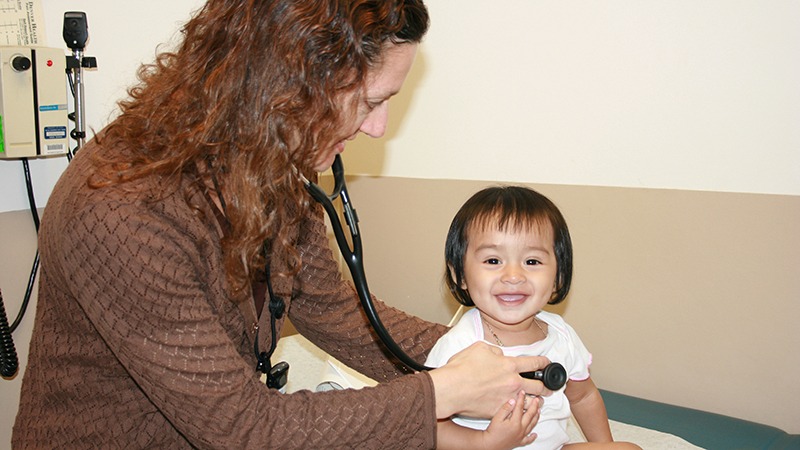Protect Colorado’s Access and Coverage Gains
Leer en español
Photo by Rachel Mondragon
By Ned Calonge, MD, MPH, Karen McNeil-Miller, EdD, and Chris Wiant, MPH, PhD
The presidents of The Colorado Trust, the Colorado Health Foundation and Caring for Colorado Foundation jointly authored an opinion piece that has been submitted to newspapers across the state. The column discusses the importance of protecting and advancing health care coverage and access gains made in Colorado in recent years. The piece is shared below.
The path to good health takes shape in and beyond the clinic—it is influenced by opportunities and challenges we face at home, in our communities and through public policy. In America, we are facing significant change in political leadership. The policies our new elected officials may enact promise to affect both health care access and coverage—factors that research shows can dictate not just how we live, but how long and well we live.
In Colorado, we have made recent significant strides to assure that public policies help Coloradans attain and improve access and coverage. Now, more than ever, it is essential that these gains be sustained and extended to Coloradans who haven’t been reached.
Yes, Colorado has a reputation as one of the healthiest states in the nation—but it is not a reality for all Coloradans. This vision cannot be fully achieved without effective policy that prioritizes affordable, adequate and equitable access to physical, oral and mental health care. Our systems and policies mark the path we take to achieve health. Access to comprehensive care is a critical juncture on that path. We must sustain what works and tirelessly promote systems and policies that enable better health.
Today, we have achieved the most tangible progress toward adequate access and coverage in our living history. In 2013, 14.3 percent of Coloradans (741,000) were uninsured. By 2015, this dropped to a record low of 6.7 percent, according to the 2015 Colorado Health Access Survey (CHAS)—meaning approximately 388,000 Coloradans gained coverage in two years. Only 2.5 percent of Colorado children remain uninsured, down from 7.0 percent in 2013. The 2015 CHAS did not find adverse impacts on access to care, despite initial concerns to the contrary.
Numerous studies show that maintaining continuous health insurance coverage is critical to living a healthier life. Moreover, these coverage gains have also impacted Coloradans’ financial security. In the 2015 CHAS, 74.6 percent of Coloradans surveyed said the Colorado health care system “works for them and their family,” up from 69.1 percent in 2013. And a 2016 Colorado Health Foundation-commissioned study by the Colorado Futures Center at Colorado State University found that Medicaid expansion, which has been largely funded by the federal government, “is already having and will continue to have a significant positive impact on the state’s economy.”
Colorado’s economy has grown $3.82 billion as a result of the coverage increases, spurring creation of 31,074 new jobs, according to the Colorado Futures Center analysis. Average household earnings are up $643, and thousands of Colorado families have newfound economic security that coverage inherently provides.
We have not made it to the finish line, however. Thousands living in poverty still aren’t covered or accessing necessary care. Significant differences in health insurance premiums and deductibles exist across the state. We have not experienced a rural hospital closure in the last five years, but they, too, remain one policy change away from closing their doors and further curtailing access.
We all have a role, as Coloradans, to stand up for the progress we’ve made toward good health. The philanthropic community and our partners must stay focused on our collective mission to improve health in Colorado. Residents must voice their needs for access to care that enables a quality life. Policymakers have a responsibility to examine, politics aside, what is working for Coloradans and help further improve the progress our state has made. They must ask at every critical moment: “What’s best for the people of Colorado?”
The answer to that question should be the North Star that charts our path forward. Together, with our partners across the state, our foundations are committed to assuring we keep this question top of mind, and help enable the opportunity to be our healthiest—no matter who you are or where you live in our state.
Ned Calonge is president and CEO of The Colorado Trust; Karen-McNeil Miller is president and CEO of the Colorado Health Foundation; and Chris Wiant is president and CEO of Caring for Colorado Foundation.

